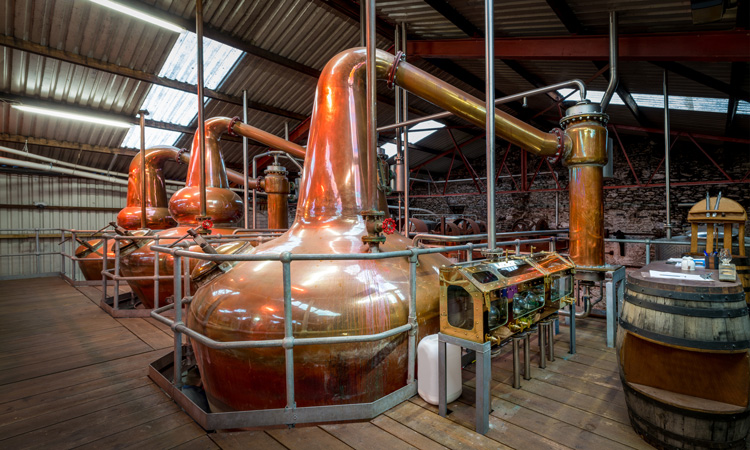£10 million programme launched to help UK distilleries go green
- Like
- Digg
- Del
- Tumblr
- VKontakte
- Buffer
- Love This
- Odnoklassniki
- Meneame
- Blogger
- Amazon
- Yahoo Mail
- Gmail
- AOL
- Newsvine
- HackerNews
- Evernote
- MySpace
- Mail.ru
- Viadeo
- Line
- Comments
- Yummly
- SMS
- Viber
- Telegram
- Subscribe
- Skype
- Facebook Messenger
- Kakao
- LiveJournal
- Yammer
- Edgar
- Fintel
- Mix
- Instapaper
- Copy Link
Posted: 19 August 2020 | Sam Mehmet (New Food) | No comments yet
The Green Distilleries programme aims to address decarbonisation in the spirits sector by accelerating the development of low carbon fuel switching solutions.


In the 2020 Budget, Chancellor Rishi Sunake announced £10 million of new research and development (R&D) funding to help decarbonise UK distilleries. The Green Distilleries programme is said to align closely with the Department for Business, Energy and Industrial Strategy’s (BEIS) wider innovation work to deliver on the Government commitment to accelerate the commercialisation of innovative, cheap, clean and reliable energy technologies, enabling the UK to meet net-zero.
It is estimated that there are over 400 distilleries across the UK. The spirits sector is estimated to have a gross value added (GVA) of £8.25 billion with Scotch whisky providing £5.5 billion. £4.7 billion was through exports, making up 21 percent of all UK food and drink exports.
The production of whisky is around seven times more energy intensive than that of gin and directly produced around 530,000 tonnes of CO2 equivalent in 2018, according to Government statistics. The majority of these emissions are said to come from the generation of heat for the distillation process, which accounts for approximately 83 percent of the distillation industry’s fuel consumption.
Due to the remote location of some of the distilleries, the industry still uses a range of fossil fuels including medium/heavy fuel oil.
The decarbonisation opportunities for the distillation industry are split into four main groups:
- Energy efficiency
- Fuel switching
- Resource efficiency
- Carbon capture, utilisation, and storage (CCUS).
The Green Distilleries programme will take a portfolio approach to funding and aims to fund a range of different solutions, which could include electrification, hydrogen, biomass or waste. In addition, enabling technologies will be considered and could include fuel conversion, transportation or storage. The programme will be phased and will start with feasibility studies with a subsequent demonstration phase.
Related topics
Beverages, Environment, Sustainability, Technology & Innovation









